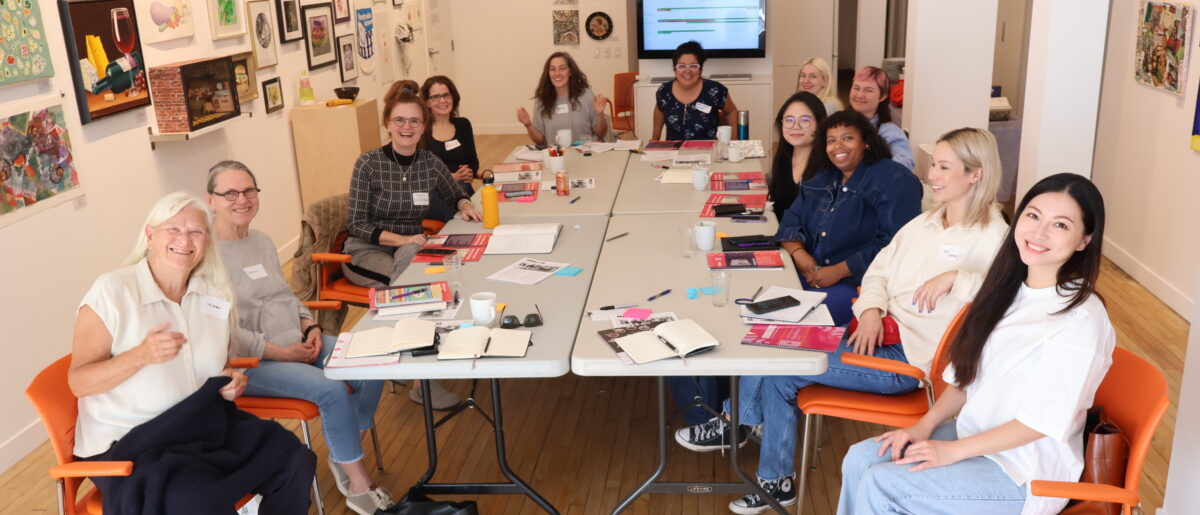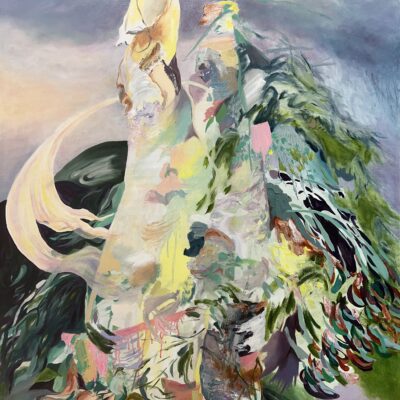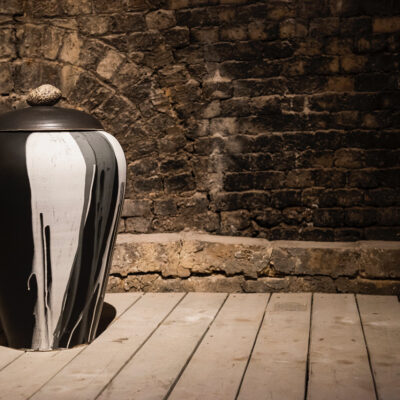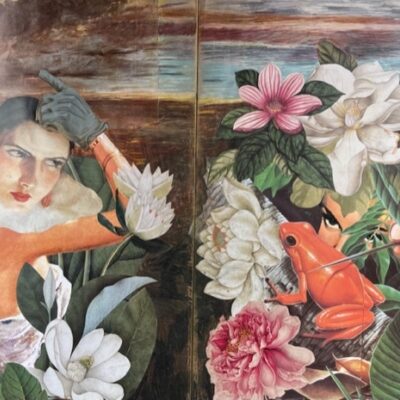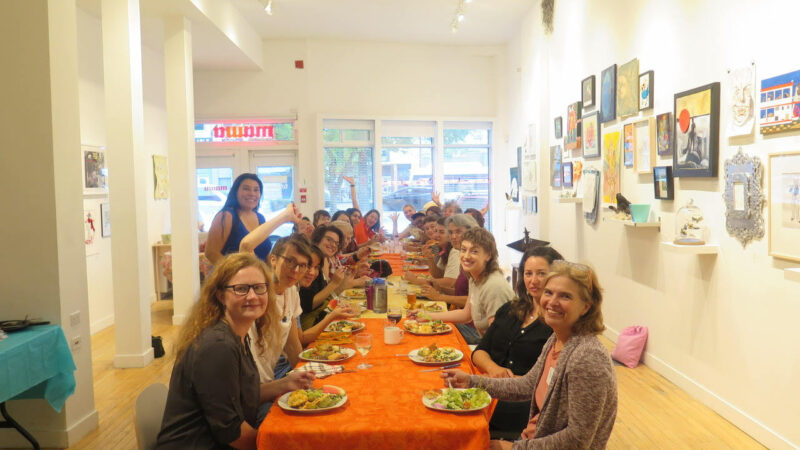- Application Deadline
Friday, May 3, 2024 at 12:00pm - September 2024 – August 2025
Call for submissions
Year-Long Mentorship Program, Sept 2024 – Sept 2025
Extended application deadline: Friday, May 3, 2024 at noon
The Foundation Mentorship Program (FMP) is a professional training program designed to help women and non-binary, trans and Two-Spirit woman-identifying people in the visual arts develop skills and define their decision-making philosophies by providing information, resources and support. In this year-long professional training program, established artists (mentors) meet individually with their mentees for 4 hours per month to share their experience, expertise and advice. The entire FMP group meets for 3 hours each month for critiques, discussion, gallery visits and other activities.
Applicants will be selected based on the quality and potential of the artwork submitted, the emerging artist’s willingness to dedicate time to the program, and the mentor’s ability to work with the emerging artist through a shared medium or conceptual interest. Mentors choose their mentees. If you have applied before and were unsuccessful, consider revisiting your application and the quality of your images and applying again. Note that demand for this program far outstrips available spaces. Sometimes the mentors agree that an artist’s work is excellent, but they do not feel that they have the specific skills or experience to help. Another year, another mentor might select you.
Potential mentees of all adult ages and backgrounds are encouraged to apply. Students are not eligible. There is no fee to apply, but successful applicants will be charged $300 for the program. If you require accommodations such as ASL for the application process or the program itself, or if finances would be a barrier to a successful application, please contact Adriana at [email protected].
To apply for the Foundation Mentorship Program, send a single PDF document labelled with your name and FMP (e.g., Sarah Wong FMP) containing:
- a letter outlining why you want to participate in this program and what you hope to achieve through mentorship, including a description of your art practice, and information regarding how we can contact you by phone, email and post
- an artist résumé (maximum 3 pages)
- up to 20 embedded images of your artwork, with an image list or captions giving the title of the work, medium, date completed and dimensions; or links to up to 3 minutes of video
Email your application to [email protected] with “FMP 2024” in the subject line. (If English is not your first language and you would like to apply verbally, please call the office and we can make accommodations.)
-
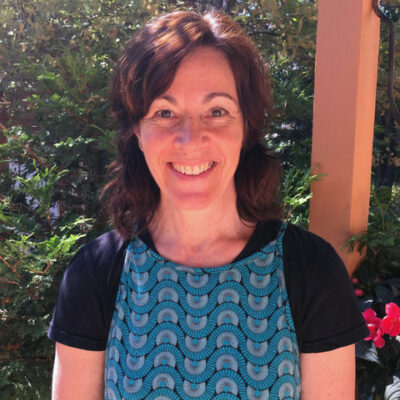
Inspired by natural settings, Patricia Eschuk works with oil paint and mixed media to explore the intersection between external and internal landscapes. Using a responsive, process-based approach, she plays with the physical qualities of the mediums to create an expressive visual language. Prior to her professional artistic practice, she worked and taught as a physical therapist and holistic practitioner. Her understanding and experience in working manually with the human body and its energy influence her art work. She has exhibited in numerous solo and group shows within Manitoba.
-
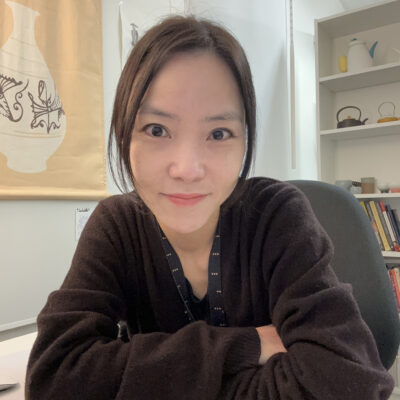
Grace Han is a ceramic artist originally trained in Seoul, South Korea. She earned her Bachelor of Fine Arts from Dankook University, specializing in traditional Korean ceramic techniques and skills. After immigrating to Canada, she experienced significant struggles, confusion, and a sense of being lost as a newcomer. All these challenges have served as fuel for her creative work with clay, expressed through her installations and performances. She teaches at the University of Manitoba’s School of Art.
-
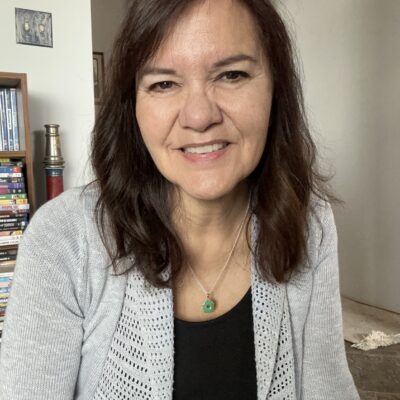
Suzanne McLeod is Anishinaabe-ikwe from the Sagkeeng First Nation, Manitoba. She completed her PhD in Native American Art History at the University of New Mexico, and is currently an Assistant Professor in Indigenous Art History at the School of Art, University of Manitoba. Her present research focusses on dismantling colonial tropes that have defined Indigenous people since the time of the Renaissance; this includes the evolution of stereotype as evidenced within Western art, the fallout from the Doctrine of Discovery on Indigenous populations, and the rewriting of history through the power and lens of Indigenous narrative, art and aesthetics.
-
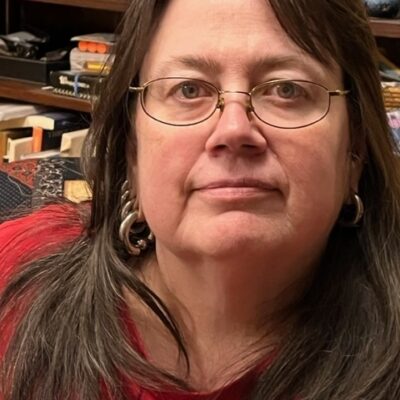
Bonnie Marin’s practice includes painting, sculpture, collage and books. Her work is narrative-based, telling stories of social interactions between people. It comes from a feminist perspective, and often plays with images of gender, religion and nature. Though her work often deals with dark themes, Marin uses humour by combining elements of pop art and surrealism. She has exhibited nationally and internationally and her pieces are held in various public and private collections.

